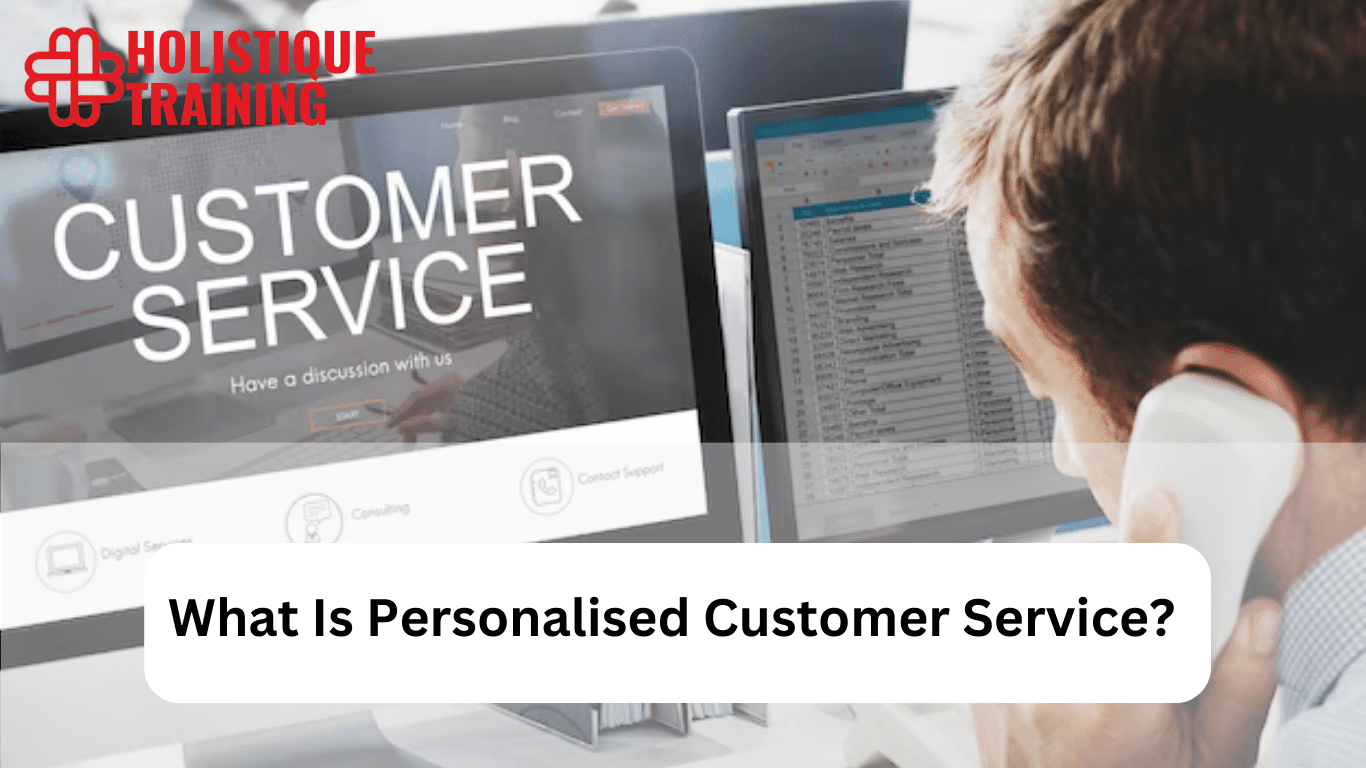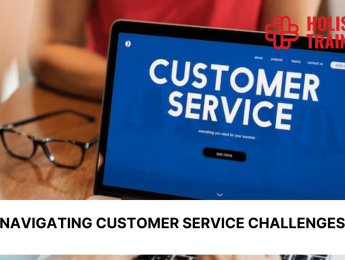In a world where businesses strive to stand out in the crowded marketplace and customers' expectations are more demanding than ever, the art of exceptional customer service has become paramount. Among the array of strategies that businesses employ to create lasting impressions, one particular approach has proven to be a game-changer: personalised customer service. In this comprehensive guide, we will delve deep into the intricate world of personalised customer service, exploring its multifaceted benefits, the strategic steps to successfully implement it, the challenges that come with it, and real-world examples that highlight its transformative potential.
What Is Personalised Customer Service?
Personalised customer service, as the name suggests, involves tailoring your interactions and offerings to meet the unique needs and preferences of individual customers. It goes beyond the one-size-fits-all approach and seeks to create a personalised experience that resonates with each customer on a deeper level. This approach recognises that each customer is distinct and values a brand that understands and caters to their specific requirements.
Personalised customer service has now become more important than ever before. In a recent survey conducted by Zendesk, they found that a significant 76% of participants expect personalised experiences, encompassing a range of possibilities such as recommendations for products derived from their purchase and search history. So, make sure you don’t sleep on personalisation next time you’re planning your customer service strategy.
Benefits of Providing Personalised Customer Service
Enhanced Customer Loyalty
Personalised customer service serves as a potent catalyst for cultivating a robust sense of loyalty among customers. Beyond mere transactions, customers seek emotional connections with brands. When they perceive that a brand understands and values them on an individual level, it fosters a profound sense of connection. This emotional resonance becomes a pivotal factor in customers choosing to remain loyal to your brand over competitors. As a result, businesses that invest in personalised customer service often witness a higher rate of repeat purchases and prolonged customer relationships.
Improved Customer Satisfaction
At the heart of personalised customer service lies the commitment to addressing individual needs with precision. This tailored approach contributes significantly to heightened customer satisfaction. By acknowledging and proactively meeting the unique preferences and requirements of each customer, businesses create an environment where customers feel seen and appreciated. This positive experience not only translates into immediate satisfaction with transactions but also sets the stage for positive word-of-mouth marketing. Satisfied customers become enthusiastic brand advocates, sharing their positive experiences with friends, family, and online communities.
Increased Customer Lifetime Value
Personalisation extends the customer lifecycle by encouraging prolonged engagement. When customers consistently receive personalised service, they are more likely to remain actively involved with a brand over an extended period. This extended engagement directly translates into increased customer lifetime value (CLV). As customers continue to make purchases and contribute to a brand's revenue streams, the cumulative impact on CLV becomes a compelling reason for businesses to invest in personalised customer service as a strategic imperative.
Higher Conversion Rates
Tailoring offerings based on customer preferences has a direct impact on conversion rates. When customers receive recommendations, promotions, or product suggestions that align seamlessly with their interests and purchasing history, the likelihood of conversion significantly increases. Personalisation, when executed effectively, creates a seamless and enjoyable customer journey, guiding potential buyers toward a purchase decision. The alignment of offerings with individual preferences not only streamlines the decision-making process but also enhances the overall customer experience, contributing to higher conversion rates.
Competitive Advantage
In an era where the marketplace is saturated with options, standing out from the competition is crucial. Personalised customer service emerges as a potent differentiator, providing businesses with a competitive edge. It becomes a unique selling proposition (USP) that resonates with customers who increasingly value individualised attention. The ability to tailor interactions and offerings to the specific needs and preferences of customers distinguishes a brand from competitors offering generic, one-size-fits-all approaches. This distinctiveness becomes a compelling reason for customers to choose and remain loyal to a brand in a crowded market landscape.
In essence, the benefits of providing personalised customer service extend far beyond immediate transactions. They weave a tapestry of customer loyalty, satisfaction, increased lifetime value, improved conversion rates, and a sustainable competitive advantage. As businesses navigate the evolving landscape of customer expectations, investing in the art and science of personalisation emerges not just as a strategic choice but as an imperative for sustained growth and success.
Steps to Providing Personalised Customer Service
1- Collect Comprehensive Customer Data
The foundation of effective personalised customer service lies in the collection of comprehensive customer data. To create meaningful personalisation, businesses must go beyond basic demographic information. Insights into purchase history, browsing behaviour, preferences, and interactions provide the building blocks for constructing detailed customer profiles. Leveraging data collection tools, surveys, and feedback mechanisms, businesses can amass a wealth of information that forms the basis for tailoring interactions and offerings.
2- Analyse and Segment Customers
Once the data is collected, the next crucial step is to analyse and segment customers based on shared characteristics. Customer segmentation allows businesses to categorise their audience into distinct groups with similar behaviours, preferences, and needs. This segmentation is the key to delivering personalised experiences at scale. By understanding the nuances of each segment, businesses can tailor their communication and offerings to align with the specific expectations and requirements of different customer groups.
3- Implement Personalisation Tools
The implementation of technology is pivotal in delivering personalised customer service efficiently and at scale. Customer Relationship Management (CRM) systems, marketing automation platforms, and artificial intelligence (AI) tools play a crucial role in automating and streamlining personalisation processes. These tools help businesses analyse vast datasets, identify patterns, and deliver real-time personalisation across various touchpoints. Through the use of AI, businesses can predict customer preferences, enabling proactive personalisation that goes beyond reactive responses.
4- Customise Communication
Crafting personalised communication is a cornerstone of successful personalisation efforts. This involves tailoring messages, emails, and other communication channels to resonate with the specific preferences and behaviours of each customer segment. Personalised communication goes beyond addressing customers by their names; it involves delivering content, promotions, and information that align with individual interests. Businesses can leverage customer data to create targeted campaigns, ensuring that the right message reaches the right audience at the right time.
5- Offer Tailored Recommendations
One of the tangible ways to implement personalisation is by providing customers with tailored product recommendations. Leveraging data-driven insights, businesses can recommend products or services that align with the customer's past purchases, preferences, and browsing history. Whether through an e-commerce platform, email campaigns, or personalised website content, tailored recommendations enhance the overall customer experience by simplifying the decision-making process and showcasing an understanding of individual needs.
6- Empower Customer-Facing Teams
Personalised customer service is not limited to automated processes; it also involves empowering customer-facing teams with the information and tools needed to offer personalised assistance. Equipping customer service representatives with access to customer profiles, purchase history, and communication records enables them to provide tailored support. This human touch complements automated personalisation efforts, creating a seamless and holistic customer experience. Training customer-facing teams to leverage personalisation tools ensures that customers receive consistent and personalised assistance across all touchpoints.
The successful implementation of these steps requires a strategic and holistic approach. Businesses must view personalisation as an ongoing process that evolves with changing customer expectations and technological advancements. As customer preferences continue to shift, the ability to adapt and refine personalisation strategies becomes a competitive advantage. Ultimately, the steps to providing personalised customer service are not just a checklist but a dynamic framework that positions businesses to forge lasting connections with their customers.
Table 1: Metrics to measure the effectiveness of personalised customer service
Metric | Description |
Customer Satisfaction Score | Gauge overall happiness with personalised interactions. |
Conversion Rates | Measure the percentage of personalised interactions resulting in sales. |
Customer Retention Rate | Track the number of customers retained through personalisation. |
Net Promoter Score | Assess customer likelihood to recommend after personalised service. |
Response Time | Monitor speed of personalised issue resolution. |
The Challenges of Offering Personalised Service
Data Privacy Concerns
Collecting and storing customer data for personalisation can raise privacy concerns. On the bright side, though, people have regained their trust in providing their data to companies. In fact, from 2019 to 2020, privacy concerns among consumers witnessed a substantial decrease, with the United Kingdom experiencing a decline of 69%, while in the United States, there was a notable 61% drop, according to Zendesk. Don’t get too excited, though. It's still extremely crucial to adhere to relevant data protection regulations and ensure that customer data is secured.
Data Accuracy
The effectiveness of personalisation is contingent upon accurate and up-to-date customer data. Inaccuracies, outdated information, or incomplete profiles can lead to irrelevant recommendations and a poor customer experience. Maintaining data accuracy requires a proactive approach, involving regular audits, data cleansing processes, and mechanisms to update customer information in real-time. Businesses must invest in data quality management to ensure that the foundation of their personalisation efforts remains reliable and precise.
Scalability
Implementing personalised customer service on a large scale introduces complexities, especially as a business's customer base grows. Maintaining consistent and effective personalisation becomes challenging when dealing with a diverse and expansive audience. Scalability issues may arise in technology infrastructure, resource allocation, and the ability to adapt personalisation strategies to a broader customer spectrum. Businesses need to invest in scalable technologies and processes that can accommodate growth without compromising the quality of personalisation.
Striking the Right Balance
While personalisation is a powerful tool, there's a fine line between being helpful and intrusive. Overpersonalisation can lead to customers feeling uncomfortable and invaded. Striking the right balance requires a nuanced understanding of customer preferences and boundaries. Businesses must avoid crossing into the realm of excessive personalisation that may be perceived as intrusive. This delicate equilibrium involves continuously gauging customer feedback, monitoring engagement metrics, and refining personalisation strategies based on evolving customer expectations.
Technological Complexity
The implementation of personalisation tools, including AI-driven systems, introduces technological complexity. Businesses need to invest in and integrate sophisticated technologies to analyse vast datasets, predict customer behaviour, and deliver real-time personalisation. This complexity is amplified as technologies evolve, requiring businesses to stay abreast of advancements and continuously update their systems. Adequate training for staff to leverage these technologies is equally essential to ensure seamless integration and optimal performance.
Cultural Considerations
In a globalised marketplace, catering to diverse cultural preferences poses an additional layer of challenge. What may be perceived as personalised service in one cultural context might be interpreted differently in another. Navigating cultural nuances and adapting personalisation strategies to align with regional expectations requires a deep understanding of cultural diversity. Businesses expanding into international markets must invest in research and adapt their personalisation approaches to respect and resonate with varied cultural norms.
Addressing these challenges requires a holistic and adaptive approach. Businesses should view challenges not as insurmountable obstacles but as opportunities for growth and improvement. By proactively addressing data privacy concerns, ensuring data accuracy, tackling scalability issues, striking the right balance in personalisation, managing technological complexity, and respecting cultural considerations, businesses can fortify their personalised customer service strategies and deliver exceptional experiences across diverse customer segments.
Personalised Customer Service Examples
Amazon's Personalised Product Recommendations
Amazon's recommendation engine is a prime example of personalised customer service. By analysing browsing and purchasing behaviour, Amazon suggests products that align with each user's preferences, leading to increased sales and customer satisfaction.
Starbucks' Customisable Orders
Starbucks allows customers to personalise their orders to an impressive degree. Customers can choose their type of milk, syrup, and extras, enabling them to create a drink that matches their exact taste preferences.
Spotify's Curated Playlists
Spotify curates personalised playlists for each user based on their listening history and preferences. This personal touch not only keeps users engaged but also exposes them to new music that aligns with their tastes.
Netflix's Content Recommendations
Netflix employs sophisticated algorithms to recommend TV shows and movies based on a user's viewing history. This personalised content discovery enhances user satisfaction and keeps them engaged on the platform.
The Role of Artificial Intelligence in Personalised Customer Service
In the ever-evolving landscape of customer service, Artificial Intelligence (AI) has emerged as a transformative force, playing a pivotal role in the delivery of personalised experiences at scale. The integration of AI technologies, including machine learning algorithms, chatbots, and predictive analytics, has reshaped how businesses interact with their customers, offering a level of personalisation that goes beyond traditional approaches.
1. Predictive Analytics for Anticipating Customer Needs
One of the key contributions of AI in personalised customer service is its ability to leverage predictive analytics. By analysing vast datasets, AI systems can identify patterns and trends in customer behaviour. This predictive capability empowers businesses to anticipate customer needs and preferences, enabling them to proactively offer tailored solutions, product recommendations, or assistance before the customer even articulates their requirements. This not only enhances the efficiency of customer service but also contributes to a heightened sense of personalisation.
2. Machine Learning Algorithms for Continuous Improvement
Machine learning algorithms lie at the core of AI-driven personalisation. These algorithms can learn and adapt based on customer interactions, refining their understanding of individual preferences over time. As customers engage with a brand, machine learning systems continuously analyse their behaviour, enabling businesses to evolve their personalisation strategies dynamically. This iterative process ensures that personalisation efforts remain relevant and effective, aligning with shifting customer expectations and market trends.
3. Chatbots for Real-Time Interaction
Chatbots, powered by AI, have become integral in providing real-time, personalised interactions. These virtual assistants can engage with customers across various channels, addressing queries, providing information, and even facilitating transactions. The ability of chatbots to understand natural language and context enables them to deliver a conversational and personalised experience. Whether guiding customers through product choices or assisting with issue resolution, chatbots contribute to a seamless and efficient personalised customer service journey.
4. Personalisation at Every Touchpoint
AI enables businesses to implement personalisation consistently across diverse customer touchpoints. From website interactions and mobile apps to email campaigns and social media, AI-driven personalisation ensures a cohesive and tailored experience. By analysing customer data from multiple sources, AI systems create a unified customer profile, allowing businesses to deliver personalised content, recommendations, and promotions across the entire customer journey. This holistic approach contributes to a comprehensive and integrated personalised customer service strategy.
5. Proactive Problem Resolution with AI
AI not only responds to customer queries but also excels in proactive problem resolution. By identifying potential issues before they escalate, AI-driven systems can intervene with timely solutions. For example, AI can detect patterns indicative of a potential service disruption or product dissatisfaction and initiate preemptive measures. This proactive approach not only enhances customer satisfaction but also demonstrates a brand's commitment to addressing customer needs before they become significant concerns.
6. Data-Driven Personalisation Insights
AI's analytical capabilities provide businesses with profound insights into customer behaviour and preferences. Through advanced data analytics, businesses can gain a deeper understanding of the factors influencing purchasing decisions, the effectiveness of specific personalisation strategies, and emerging trends. These insights empower businesses to make informed decisions, refine personalisation approaches, and stay ahead of evolving customer expectations.
As businesses embrace the transformative power of AI in personalised customer service, the focus shifts from reactive responses to proactive and anticipatory interactions. The integration of AI technologies not only enhances the efficiency of customer service processes but also elevates the overall customer experience by delivering personalised interactions that resonate with individual preferences. Embracing AI-driven personalisation is not just a technological advancement; it's a strategic imperative for businesses looking to thrive in the era of customer-centricity.
In Conclusion
Personalised customer service is a powerful approach that can elevate your brand's customer experience to new heights. By tailoring interactions, recommendations, and offerings to individual customer preferences, you can foster loyalty, increase satisfaction, and drive business growth. While implementing personalised customer service comes with challenges, the benefits far outweigh the obstacles. As businesses continue to prioritise customer-centric strategies, embracing personalised customer service is no longer an option—it's a strategic imperative in today's competitive landscape.
As you embark on the journey of elevating your customer service game, remember that the quest for excellence is an ongoing process. To further enhance your skills, check out our course, ‘Customer Service Management Strategies.’ This course is designed to equip you with the knowledge and tools necessary to excel in delivering unparalleled customer experiences. From leveraging personalisation techniques to overcoming challenges, this course will empower you to lead your business toward customer service excellence.
Frequently Asked Questions(FAQ)
What does personalised customer service mean?
Personalised customer service goes beyond generic interactions by tailoring engagements and offerings to suit the unique needs and preferences of individual customers. This approach involves understanding customers on a deeper level, acknowledging their distinctiveness, and creating an experience that resonates with their specific requirements. By treating customers as individuals rather than a homogeneous group, businesses can forge stronger connections and foster a more genuine relationship.
What benefits can my business gain from personalised customer service?
Implementing personalised customer service strategies can lead to a multitude of benefits for your business. Beyond the obvious improvements in customer loyalty, satisfaction, and lifetime value, it also acts as a catalyst for increased conversion rates. The ability to offer tailored experiences provides a competitive advantage in a crowded marketplace, setting your business apart. Moreover, it facilitates the development of deeper emotional connections with customers, which often translates into positive word-of-mouth marketing and organic brand advocacy.
How can I start implementing personalised customer service?
Embarking on the journey of personalised customer service begins with the strategic collection of comprehensive customer data. Analysing and segmenting this data into distinct customer groups lays the foundation for targeted interactions. Leveraging technology, such as Customer Relationship Management (CRM) systems, and implementing personalised communication tools ensures efficient delivery of tailored experiences. The key lies in the seamless integration of these elements, creating a dynamic and responsive framework that caters to the individual needs and preferences of your diverse customer base.
What challenges might I face while offering personalised service?
While personalised customer service offers numerous advantages, it comes with its set of challenges. Data privacy concerns, though on the decline, remain crucial to address through compliance with data protection regulations. Ensuring the accuracy of the data collected is essential to avoid irrelevant recommendations and maintain a positive customer experience. As businesses grow, scalability becomes a challenge, requiring the development of systems that can consistently and effectively personalise interactions for an expanding customer base. Striking the right balance between personalisation and intrusion is an ongoing challenge, requiring continuous refinement and adaptation of strategies.
Can you provide an example of successful personalised customer service?
Certainly! Amazon's recommendation engine stands out as a prime example of successful personalised customer service. By analysing user behaviour and purchase history, Amazon provides tailored product recommendations, creating a personalised shopping experience. Another notable example is Starbucks, which allows customers to customise their orders extensively, catering to individual taste preferences. These examples showcase how effective personalisation can enhance customer satisfaction, drive sales, and build brand loyalty by acknowledging and responding to individual preferences.





















